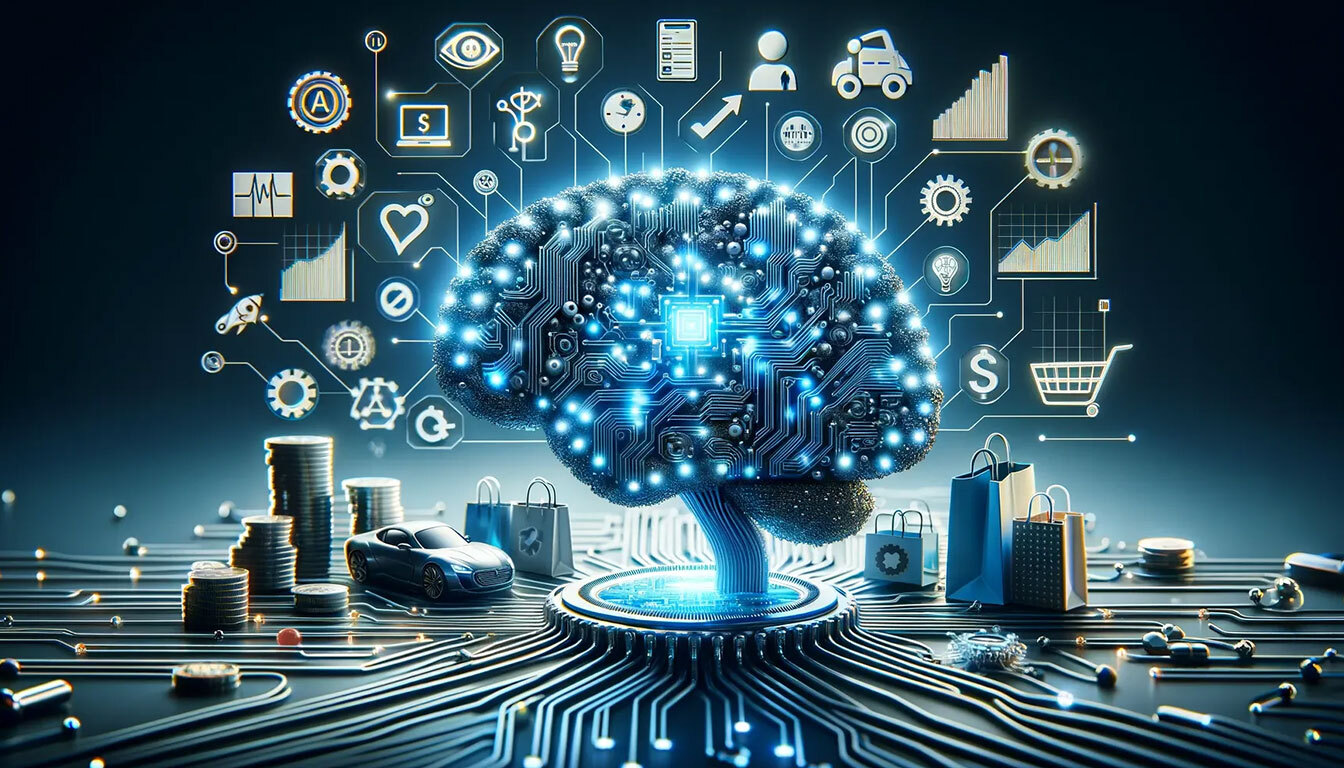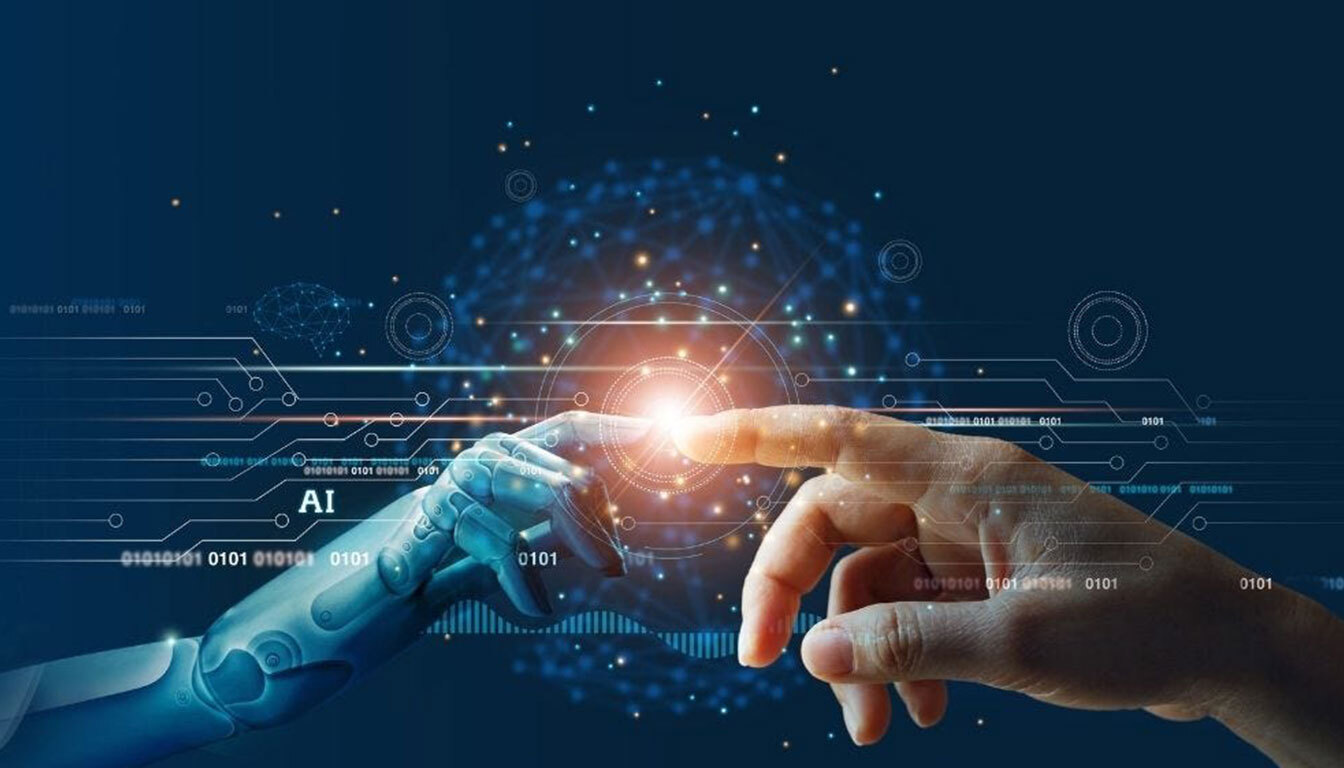
What is Generic AI? A Comprehensive Overview
Let’s Start
From workplaces to homes, AI has seamlessly integrated into our daily routines. Our day begins with interactions with smart speakers and ends with personalized shopping app recommendations, all shaped by AI's subtle influence. However, the realm of AI is vast and diverse, containing a spectrum of functionalities. Find more information on AI (Artificial Intelligence) in our blog, Why you need to understand What is AI: From Basics to Current Developments
Among the evolving branches of AI, Generic AI, often referred to as Gen AI or Generative AI, stands out as a promising frontier with vast potential. In this comprehensive overview, we delve into the concept, applications, and implications of Generic AI, exploring its significance in the digital age.
Defining Generic AI
Unlike Narrow AI (NAI), which focuses on performing specific tasks with exceptional proficiency (think chess-playing algorithms or spam filters), Generic AI aspires to achieve a broader level of intelligence. Amit Jadhav, a renowned AI keynote speaker and founder of the Digital Growth Accelerator System (DGAS) - an online digital marketing video course, describes GenAI as aiming to mimic human-like cognitive abilities. These abilities include:
- Adaptive Mastery: GenAI systems excel in tasks that surpass initial programming. They would have the capacity to learn from experiences and adjust their behavior accordingly.
- Reasoning and Problem-Solving: GenAI could analyze situations, identify patterns, and formulate solutions akin to the human thought process.
- Understanding and Responding to Context: GenAI would be able to interpret nuances in communication and respond appropriately, a feature currently lacking in many NAI systems.
Applications of Generative AI
The applications of Generative AI are diverse and far-reaching, spanning industries from healthcare and finance to entertainment and beyond:
- Healthcare: Generative AI facilitates personalized medicine by analyzing vast amounts of patient data to predict outcomes and recommend tailored treatment plans.
- Finance: AI-powered algorithms predict market trends, optimize trading strategies, and detect fraudulent activities with high accuracy and efficiency.
- Entertainment: From creating realistic CGI in movies to generating music compositions, Generative AI enhances creativity and production in the entertainment industry.
- Precision Marketing: AI-powered tools assess consumer behavior, optimize ad strategies, and personalize content to maximize digital engagement and conversion rates.
Creative Power of Generative AI
Generative AI (GenAI), a subfield within Generic AI, utilizes machine learning algorithms to create entirely new and original content. This content can encompass various formats:
- Text: Imagine AI-powered writing assistants composing compelling marketing copy or even crafting personalized poems.
- Images: GenAI could generate realistic images based on user prompts, revolutionizing product design and marketing campaigns.
- Music: AI algorithms could compose original musical pieces that cater to specific moods or genres.
The potential applications of GenAI are vast, holding the power to transform creative industries and enhance communication across language barriers.
Key Components of Generic AI
Several key components define Generic AI and differentiate it from other AI approaches:
- Transfer Learning: Enables AI models to leverage knowledge learned from one domain and apply it to another, accelerating learning and adaptation.
- Adaptive Learning: Emphasizes the creation of algorithms capable of mastering the learning process, thereby increasing the efficiency of acquiring new skills and adjusting to dynamic environments.
- Domain Adaptation: Addresses the challenge of applying AI models trained on one dataset to different but related datasets, enhancing the robustness and applicability of AI systems.
The Role of Generative AI in Digital Growth
In the realm of digital marketing and entrepreneurship, Generative AI plays a pivotal role in driving innovation and achieving sustainable growth:
- Personalization: AI-powered tools analyze user preferences and behavior to deliver personalized recommendations, enhancing customer satisfaction and retention.
- Content Generation: Generative AI creates compelling content, including articles, videos, and advertisements, tailored to resonate with target audiences and optimize engagement.
- Lead Generation: AI algorithms identify and qualify leads based on predictive analytics, streamlining the sales process and improving conversion rates.
You can also refer to the blog, AI’s role in modern marketing to find out more about AI-driven marketing.
Generative AI: Future Trends and Considerations
Looking ahead, the future of Generic AI promises continued advancements and broader integration across industries. Key trends include:
- Ethical Considerations: Addressing ethical concerns such as data privacy, bias in AI algorithms, and the societal impact of automation remains crucial in the development and deployment of Generative AI.
- Legal Frameworks: Governments and regulatory bodies are intensifying efforts to establish regulations and frameworks that promote ethical AI development and usage.
- Collaborative Innovation: The convergence of Generative AI with other technologies such as IoT (Internet of Things) and blockchain is expected to drive collaborative innovation and unlock new opportunities for business and society.
To gain more knowledge about generative AI, you can check out our interesting blog post, Is generative AI the future? and try.
Challenges and Opportunities in GenAI
The development of true Generic AI remains an ongoing pursuit, facing several challenges:
- Data Acquisition and Processing: Training GenAI systems requires vast amounts of diverse data, presenting logistical and ethical hurdles.
- Explainability and Transparency: Understanding how GenAI arrives at its decisions is crucial for ensuring trust and responsible development.
- Computational Power: The sheer processing power needed for GenAI simulations currently requires advanced and expensive hardware.
Despite these challenges, advancements in machine learning, big data, and computing power are paving the way for the future of GenAI.
The Impact of Generic AI on Our World
GenAI holds the potential to transform numerous facets of our lives.
- Enhanced Productivity: GenAI could automate complex tasks, freeing humans to focus on more strategic endeavors.
- Personalized Experiences: Imagine AI assistants personalizing services and interactions according to your individual preferences and specifications..
- Scientific Advancement: GenAI could significantly accelerate scientific research and discovery by analyzing vast datasets and identifying unforeseen connections.
- Evolving Jobs Landscape: While some jobs may be automated by GenAI, new opportunities will arise, requiring skills in collaboration, creativity, and critical thinking.

Conclusion
In conclusion, Generic AI represents a transformative force reshaping the landscape of AI applications and digital transformation. With its ability to generalize learning, adapt to diverse environments, and drive innovation across industries, Generative AI holds the potential to revolutionize how businesses operate and engage with customers in the digital age. As Amit Jadhav and proponents of AI-driven innovation advocate, understanding and harnessing the power of Generative AI is essential for businesses aspiring to achieve sustainable growth and competitive advantage in a rapidly evolving market.
Generic AI, with its potential for human-level intelligence and adaptation, holds immense promise for the future. While challenges remain, ongoing advancements are laying the groundwork for a new era of AI innovation. By fostering collaboration between AI developers, researchers, and society at large, we can ensure that GenAI is developed ethically and responsibly, ultimately contributing to a more prosperous and fulfilling future for all.
- Amit Jadhav
www.amitjadhav.com
